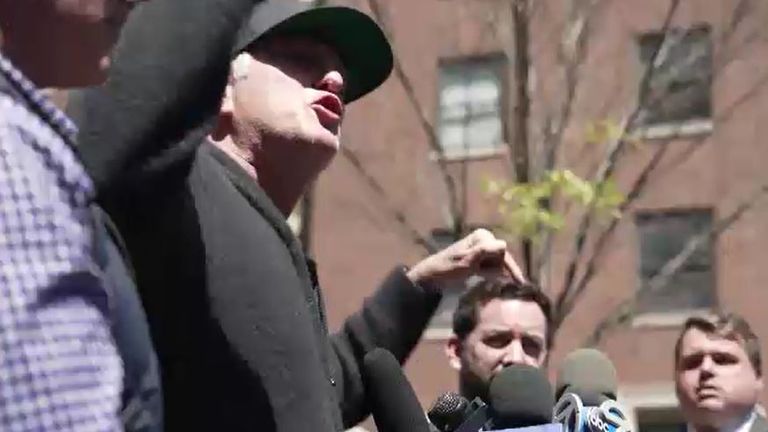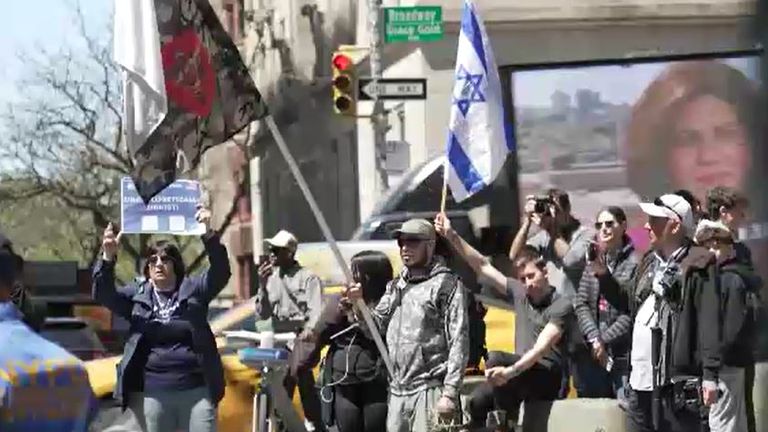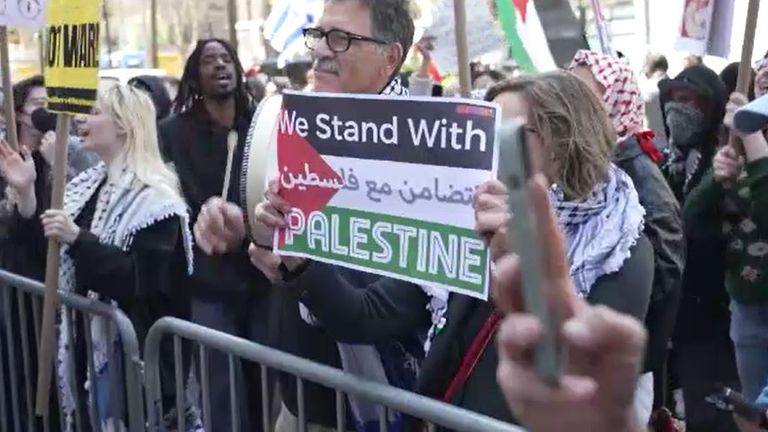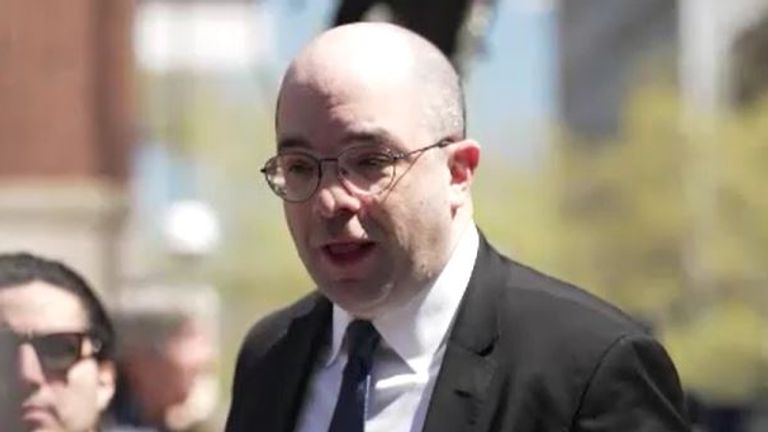In the fog of a deeply disconcerting time for so many groups of people, it is vital to see and hear up close what is happening.
This is a scary time for many. Positions are well-entrenched, opinions are polarized and emotions run very high.
And in this environment, issues can be conflated, judgments can be rash, and deeply complex issues can be condensed into their simplest, most digestible form.
There are a multitude of prisms through which people see things. Nuance is too often lost.
Columbia University, located on the Upper West Side of New York, is one of the most prestigious institutions in America.
It is one of several Ivy League schools where protests against Israel’s war in Gaza have become a national problem that baffles police and divides politicians.
Those who seek nuance end up finding themselves in knots as they seek balance.
“I condemn anti-Semitic demonstrations…” President Biden said in his latest comments on the growing movement, adding: “I also condemn those who do not understand what is happening with the Palestinians, and how they are…”
He couldn’t finish his sentence. There is an upcoming election. Either way, being unequivocal is not an option.
On the surface, some have concluded that all student protesters are anti-Semitic terrorist sympathizers and/or that all noisy counter-protesters are colonialist monsters who condone genocide. Of course, neither is true.
What I saw during my time, albeit limited, on the Columbia campus was a specter.
Hollywood star slams “bastards”
There was this young Lebanese-American woman who could not bring herself to condemn Hamas. There was this young American who just wanted “the genocide to end.”
There was this British professor of Middle Eastern history who was trying to trace the context of a conflict going back so many years. And there were Jewish students whose message for Israel was “not in my name.”
The essence of their demands was that the university cut all ties with Israel and divest financially.
In an era of condensed definitions, their views would, by some but not all, be interpreted as anti-Semitic or, in the case of Jewish students, as hateful.
A Jewish American politician, Bruce Blakeman, speaking on the street outside campus, said angrily: “They are traitors. »
At his side was actor and comedian Michael Rapaport, who described the protesters at the campus encampment as: “tyrants, cowards and pathetic bastards.”
Learn more:
A baby saved from the womb of his mother killed by an Israeli strike
Dozens Arrested at Yale and Columbia Cancels Classes Amid Protest
Israeli intelligence chief resigns following October 7 attack
University president warns of ‘clear and present’ danger
It is deeply depressing that some Jewish students and faculty do not feel safe on their own campuses.
Shai Davidai, an assistant professor at Columbia Business School, wrote on X: “Earlier today, Columbia University refused to let me on campus. For what ? Because they cannot protect my safety as a Jewish professor. It’s 1938.”
We are in another moment of feverish division and division where extremes are amplified and fear is visceral.
The slogans are interpreted as genocidal and are aggravated by violent threats from a minority.
What did I take on campus, as an observer without alliances but also without a visual identifier – a yarmulke or keffiyeh – to draw potential ire from one side or the other?
Well, the dominant mood in my snapshot of the campus spectrum, which by definition has its extremes, was one of tolerance, with a call for an end to all killing and occupation.
This does not match how the university president described the situation just a few days ago: “A clear and present danger to the substantial functioning of the university.”
President Minouche Shafik, an Anglo-American-Egyptian and member of the British House of Lords, chose to call in the police last week to combat the growing protest movement.
According to the Associated Press, she had “focused her message on the fight against anti-Semitism rather than on the protection of freedom of expression.”
The thorny line between free speech and hate speech is a judgment so often left to the police.
It is important to note that the police chief overseeing the arrests in Columbia last week later said: “The students who were arrested were peaceful, offered no resistance and said what they wanted to say in an honest manner. peaceful. »
Yet, in this feverish, condensed moment, they can be all of these things and, for the viewer, also be anti-Semitic.
At the heart of it all is the challenge of how to moderate the conversation; how to remain moderate, when it now seems so open to interpretation.
As I write, there are news reports of more arrests, this time at another university in the city, NYU. This provokes angry reactions.
“The NYU administration tonight joined the shameful list of American universities that have called on police to arrest their own students and faculty for protesting an ongoing genocide,” NYU professor Mohamad Bazzi posted on X.
Clara Weiss, national secretary of IYSSE, a student movement for social equality, wrote: “The Biden administration and the Democratic administration in New York and New York have all supported a state-level crackdown. state, but protests against #Gazagenocide continue to grow and expand. »
I asked NYPD Deputy Commissioner Michael Gerber to characterize the challenge.
“It’s a big and important question,” he said.
“Determining when something moves from protected speech to unprotected speech can be very context-specific; can require a lot of nuance. And you’re right, you have to make calls daily, using your judgment. We do let’s do it to the best of our abilities. [The] the stakes are high, there’s no doubt about it. »
It is therefore a question of a balance between respect for freedom of expression and its restriction.
It is about finding the right tools to allow a sober and objective deciphering of the red line which lies between freedom of expression and hate speech.







